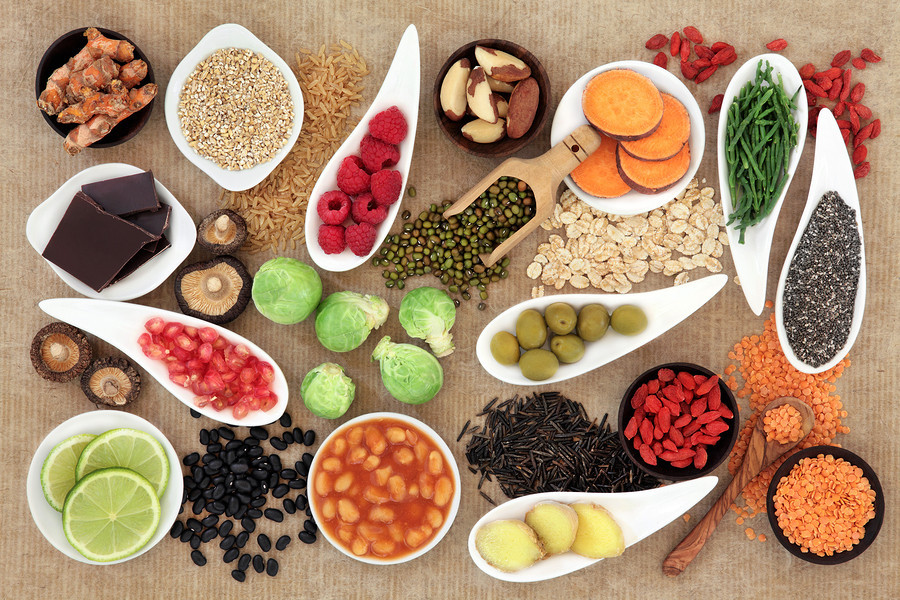
Recovering from major surgery is a complex process that involves much more than wound healing or pain management. The body undergoes tremendous physical stress during an operation, and the post-surgical period requires cellular repair, immune strengthening, and metabolic balance.
One of the most powerful yet often overlooked aspects of this healing process is nutrition.
The right nutrients can accelerate tissue regeneration, reduce infection risks, and restore energy levels — whereas poor nutrition can delay recovery, increase complications, and prolong hospital stay. Understanding the role of nutrition in post-surgical recovery can make the difference between a slow and a smooth healing journey.
During surgery, the body experiences:
As the body enters the recovery phase, it needs extra energy and building materials to repair tissues, fight infections, and regain strength. Adequate nutrition ensures the body has all the raw materials necessary for collagen synthesis, immune function, and muscle recovery.
1. Supporting Wound Healing
Surgical wounds require new cell formation and collagen production. Balanced nutrition supports the repair of skin, muscles, and connective tissue. A diet rich in natural sources of proteins, vitamins, and minerals helps rebuild tissues efficiently and prevents delayed healing or scarring.
2. Strengthening Immunity
The immune system is highly active during recovery, fighting infections and managing inflammation. Nutrients that promote immune balance help protect the surgical site and reduce the risk of post-operative infections. Maintaining a healthy gut microbiome through proper diet also enhances immune resilience.
3. Maintaining Muscle Mass and Energy
Prolonged rest after surgery often leads to muscle weakness. Adequate caloric intake and protein support help maintain muscle strength and prevent fatigue. Proper hydration is equally important for metabolic function and overall vitality.
4. Managing Inflammation and Pain
Certain foods support natural anti-inflammatory pathways in the body, helping reduce pain and swelling. A balanced diet that includes wholesome, easy-to-digest meals can keep inflammation under control without burdening digestion.
5. Enhancing Digestive Health
Surgery and medications, especially antibiotics or anesthesia, can slow down gut activity. Fiber-rich, easily digestible foods combined with sufficient fluid intake help restore normal bowel function, prevent bloating, and improve nutrient absorption.
1. Immediate Post-Operative Phase
In the first few days after surgery, the focus is on hydration and gentle nourishment. The digestive system may be sensitive, so patients are usually advised to start with clear fluids and gradually move to light, easily digestible foods. The goal during this phase is to restore energy and support hydration.
2. Active Healing Phase
As the body regains strength, nutritional demands increase. This is the stage where nutrient-dense meals play a major role in cell regeneration, wound closure, and immune enhancement. Adequate intake of proteins, natural fats, and complex carbohydrates provides sustained energy for tissue recovery.
3. Rehabilitation and Long-Term Strength
Once wounds heal and mobility improves, nutrition supports muscle rebuilding, endurance, and mental well-being. Long-term dietary balance ensures the body fully recovers from surgical stress and returns to optimal function.
Despite best intentions, many patients face challenges such as:
Addressing these challenges with the help of clinical dietitians or rehabilitation experts ensures that nutrition remains an active part of the recovery plan, not an afterthought.
Modern medicine increasingly recognizes the vital role of nutrition in recovery. Hospitals and rehabilitation centers now incorporate medical nutrition therapy, where dietitians collaborate with surgeons, physiotherapists, and Ayurvedic physicians to create comprehensive recovery plans.
In integrative care settings — such as those available in Kerala, India — nutrition is combined with physiotherapy, Ayurveda-based detox and rejuvenation therapies, and emotional wellness programs to ensure complete recovery at every level of health.
Nutrition influences not only the body but also the mind. Balanced meals stabilize blood sugar, improve sleep, and enhance mood. Patients who maintain healthy eating habits during recovery often report greater emotional stability, faster energy restoration, and improved motivation to continue rehabilitation.
A well-nourished body heals better — and a calm, positive mind speeds up that healing.
Nutrition is the silent force behind every successful recovery. After major surgery, it supports tissue repair, strengthens immunity, balances hormones, and restores vitality. While medicines and medical care treat the condition, nutrition nourishes the healer within — your own body.
For patients seeking comprehensive post-surgical recovery in India, combining medical rehabilitation with professional nutritional guidance can make the healing process faster, smoother, and more sustainable.
At Healofly, we connect patients from India and abroad to trusted hospitals, rehabilitation centers, and wellness institutions in Kerala that offer integrated post-surgical recovery programs — blending modern medicine, physiotherapy, and holistic nutrition for lasting health.
Connect with us now.
WhatsApp Us: +91 9656598858
Email: info@healofly.com
Website: www.healofly.com
Healofly – Right Place, Right Care
Healofly is an international health and wellness tourism company dedicated to connecting individuals with world-class medical care and rejuvenating travel experiences across the globe. Combining healthcare expertise with curated travel services, Healofly offers a seamless journey toward better health, recovery, and well-being.
With a trusted network of accredited hospitals, renowned specialists, and premium wellness resorts, Healofly provides personalized solutions for medical treatments, preventive health programs, and holistic healing retreats. From medical consultations and travel arrangements to accommodation and post-care support, Healofly ensures comfort, safety, and transparency at every stage of the journey.
Our mission is to make quality healthcare accessible and enjoyable by transforming necessary medical travel into a fulfilling, culturally enriching experience. Whether it’s advanced surgery, fertility treatment, dental care, spa therapy, or wellness rejuvenation, Healofly empowers clients to take control of their health while exploring the world.
+91 9656598858
Healofly By All rights reserved.
WhatsApp us